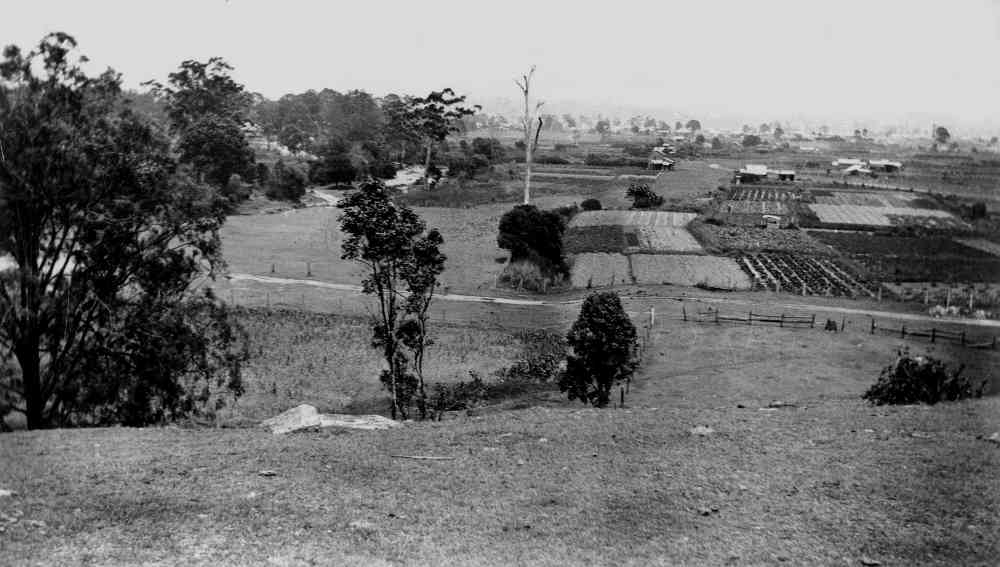
The Queenslander, Brisbane, Saturday, August 1, 1891.
Of the Chinese population of Brisbane and its suburbs a large proportion are engaged in gardening, and these vary among themselves from those cultivating little patches of about one-fifth of an acre to those who work several acres; and from those who ride into the city in carts to those who walk, carrying their produce in two large baskets strung on a pole suspended on their shoulders. The latter also trudge along in an indescribably ludicrous trot, but one which is efficient in getting them over the ground at a pace far exceeding the usual rate of men bearing burdens.
About Brisbane the Chinese have almost monopolised the vegetable business, yet because of the heavy demand for these articles good prices are maintained. Farmers are more apt to bring in butter, eggs, and potatoes than other products; but as for celery, cabbage, onions, lettuce, carrots, turnips, spinach, parsnips, radishes, peas, beans, asparagus, tomatoes, parsley, and other small goods the Chinaman is our last resort, almost our Hobson's choice.

The amount taken from a small piece of ground is astonishing. No white man could raise enough from half an acre to pay the rent, but "John" not only pays a good rent but toils on satisfied with his gains. But little information can be obtained from the Chinamen as to their gardens, methods, and plans. They look upon a questioner as one who desires by his questions to entrap them, they know not how or why, but they feel sure there is something wrong somehow.
The Chinaman remains a Chinaman in his methods all the world over. For instance any of our readers may recognise in our illustration the picture of the Chinese gardener's "residence" in his own district, but the photograph from which the sketch was made was taken in the State of Montana, U.S.A. On the front post was meat hanging in strings to dry, while all round about were to be seen pieces of wood, barrels, tin cans, grindstone, boxes, and baskets. Not seen in the picture but near by were carts, manure heaps, chains, hoes, rakes, and all manner of implements. Taken altogether the view is one of indescribable confusion. Sitting in the open door was a Chinaman grating horseradish, and weeping over it as over some deceased loved one; beside him was another doing housework and odds and ends, and representing anything but a prepossessing appearance. A photographic reproduction of a price list of goods, written half in Chinese and half in English, is interesting, if only for its curious spelling.
On New Year's Day a notice is posted over Chinamen's doors to show that all debts have been paid for the previous year; a custom which would not find much favour with some of their more civilised European fellow-citizens.